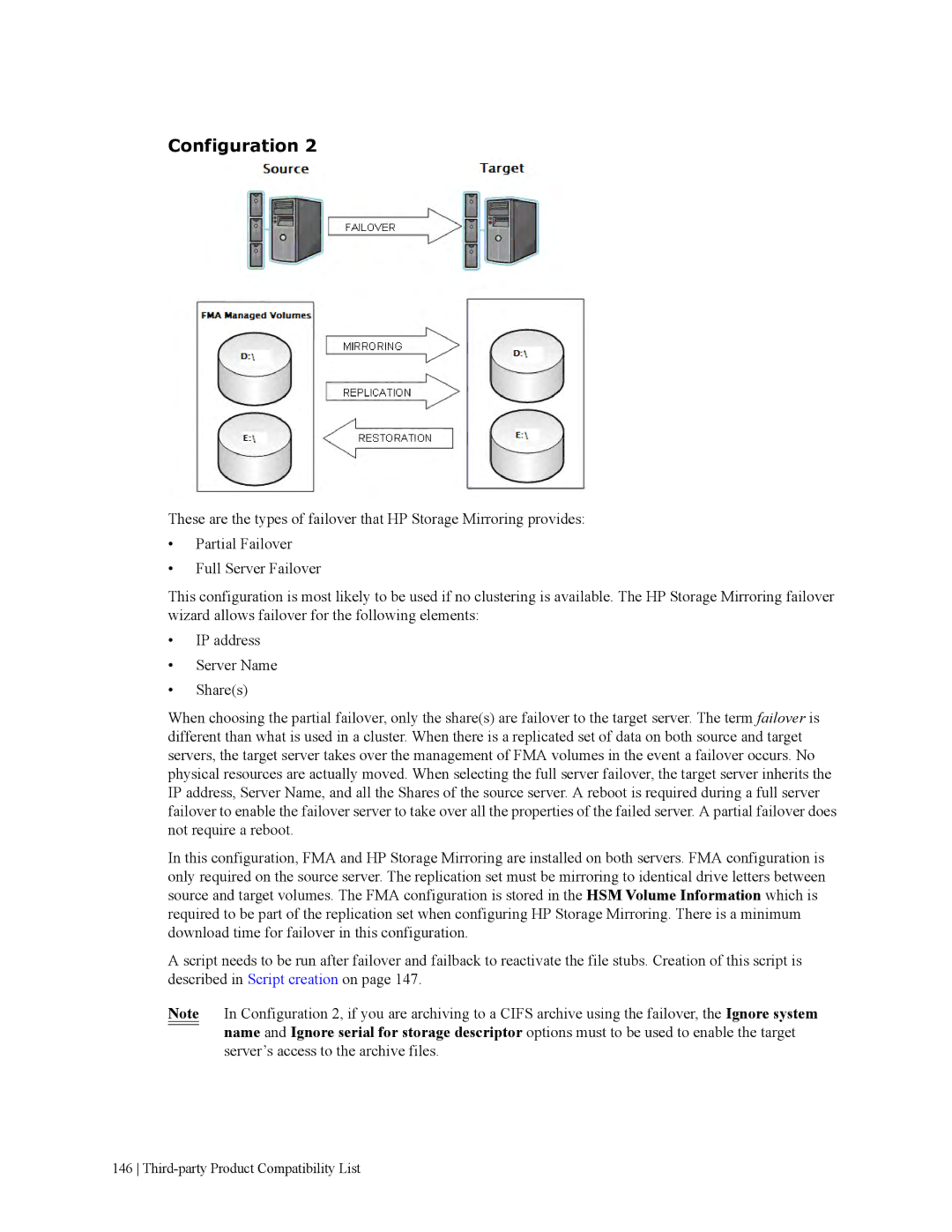
Configuration 2
These are the types of failover that HP Storage Mirroring provides:
•Partial Failover
•Full Server Failover
This configuration is most likely to be used if no clustering is available. The HP Storage Mirroring failover wizard allows failover for the following elements:
•IP address
•Server Name
•Share(s)
When choosing the partial failover, only the share(s) are failover to the target server. The term failover is different than what is used in a cluster. When there is a replicated set of data on both source and target servers, the target server takes over the management of FMA volumes in the event a failover occurs. No physical resources are actually moved. When selecting the full server failover, the target server inherits the IP address, Server Name, and all the Shares of the source server. A reboot is required during a full server failover to enable the failover server to take over all the properties of the failed server. A partial failover does not require a reboot.
In this configuration, FMA and HP Storage Mirroring are installed on both servers. FMA configuration is only required on the source server. The replication set must be mirroring to identical drive letters between source and target volumes. The FMA configuration is stored in the HSM Volume Information which is required to be part of the replication set when configuring HP Storage Mirroring. There is a minimum download time for failover in this configuration.
A script needs to be run after failover and failback to reactivate the file stubs. Creation of this script is described in Script creation on page 147.
Note In Configuration 2, if you are archiving to a CIFS archive using the failover, the Ignore system name and Ignore serial for storage descriptor options must to be used to enable the target server’s access to the archive files.
146
